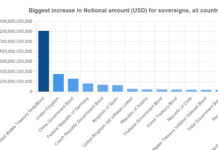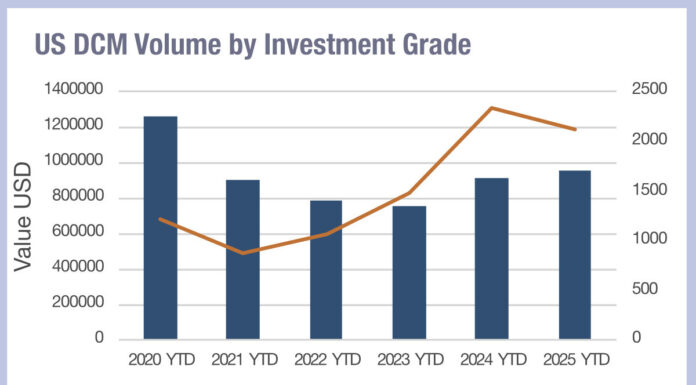In a letter penned by Bloomberg’s Gregory Babyak, global head of regulatory Affairs and Gary Stone regulatory analyst and market structure strategist, the market data, trading and communications firm has hit back against an expansion of Regulation SCI to include ‘communication protocol systems’ (CPS), a newly created category of systems that facilitate trading in many asset classes without providing firm pricing.

The proposal, made by US regulator the Securities and Exchange Commission (SEC), is to amend Rule 3b-16 under the Securities Exchange Act of 1934 (Exchange Act), which “defines certain terms used in the statutory definition of ‘exchange’ under Section 3(a)(1) of the Exchange Act to include systems that offer the use of non-firm trading interest and communication protocols to bring together buyers and sellers of securities.”
In their response to the consultation on the proposal, Babyak and Stone write, “the Commission … proposed changing the long-settled definition of an ‘exchange’ in order to extend exchange or [alternative trading system] ATS regulation to entities that do not pose exchange-like risk … Under the Proposal, that definition of ‘exchange’ would be expanded to include Communications Protocol Systems (CPS) – a term that is not defined in the regulation but is intended to cover a broad array of messaging systems.”

The expansion of regulatory boundaries on the definition of a trading venue is not only a US issue. In Europe, the European Securities and Markets Authority (ESMA) is consulting on its ‘Opinion on the trading venue perimeter’, which seeks to draw a clearer line between securities trading venues and trading tools that are not classified as venues, which could potentially see some systems reclassified as trading venues. Its consultation closes on 29 April.
In the SEC’s case, the rule is focused on the US Treasuries market – both trading and repurchase agreements (repo) in order to try and better support market operational integrity.
“ATSs that trade government securities are not subject to the systems integrity provisions of Regulation SCI,” the regulator wrote in the proposal. “To promote operational transparency, investor protection, system integrity, fair and orderly markets, and regulatory oversight for Government Securities ATSs.”
In a 2020 the Commission proposed to: eliminate the exemption from compliance with Regulation ATS for currently exempted government securities ATSs; require government securities ATSs to update regulators and report on activity and ATS compliance; and require an ATS with ‘significant’ volume for US Treasury securities or agency securities to establish ‘reasonable standards for access’ to the ATS and apply them to firms wishing to trade.
The SEC’s concern is that rather than using exchange markets “that offer only the use of firm orders and provide matching algorithms” firms instead connect via numerous ‘Communication Protocol Systems, which offer the use of protocols and non-firm trading interest to bring together buyers and sellers of securities’ which it says perform similar market place functions of bringing together buyers and sellers as registered exchanges and ATSs and have become an increasingly preferred choice of trading venue, particularly for fixed income securities,” and are not subject to the same regulatory requirements as registered exchanges and ATSs and the investors using them do not receive the “investor protection, fair and orderly markets, transparency, and oversight benefits stemming from exchange regulation.”
As some markets are CPSs and others are exchanges, there is a regulatory disparity which the SEC argues says can create a competitive imbalance and a lack of investor protections.
The proposed amendments to Exchange Act Rule 3b-16(a) would include CPSs that enable trading of government securities, corporate bonds, municipal securities, NMS stocks, equity securities that are not NMS stocks, private restricted securities, repurchase agreements and reverse repurchase agreements, foreign sovereign debt, and options.
However, while the regulator says this would “appropriately regulate a market place that brings together buyers and sellers of securities, extend the benefits of the exchange regulatory framework to investors that use such systems, and reduce regulatory disparities among like markets,” Bloomberg argues this is fixing a problem that does not exist.
“Has the failure to regulate these undefined systems created articulated harm that will be remedied by this rule? It has not,” write Babyak and Stone. “Indeed, the primary argument for the Proposal seems to be the need to address a ‘regulatory gap’ flowing from the fact that exchanges are regulated as exchanges while entities which are not exchanges avoid exchange regulation.”
They note that the catalyst for this discussion was an outage at an unregulated ATS “and in this instance Regulation SCI – is proportionate and sensible in light of that balancing of risk and benefit. By contrast, the outage of a messaging system poses no such risk. Messaging systems do not hold liquidity. And, as we discuss below, messaging systems are characterised by high levels of redundancy. Thus, subjecting messaging systems to Regulation SCI is disproportionate.”
“Certainly, treating all trading related activities – and indeed messaging activities that do not even culminate in a trade – as if they were as risky as operating a central limit order book (CLOB) imposes serious and unnecessary societal costs,” the Bloomberg team wrote. “While it is important to treat ‘like things alike’, non-redundant liquidity centres are not ‘like’ redundant messaging systems. While the benefits of having one regulatory standard for activities posing vastly different risks is unclear, the downsides are much easier to grasp, and are in part conceded by the Proposal – including the fact that the SEC states that it is not sure whether the Proposal will hurt price efficiency and capital formation. One very significant cost will be the impact on electronic trading and the ecosystem of fintech providers whose engagement in improving electronic workflows have not only increased market efficiency and competition, but also increased the capacity for more effective regulation flowing from greater supervision.”
©Markets Media Europe 2025

























